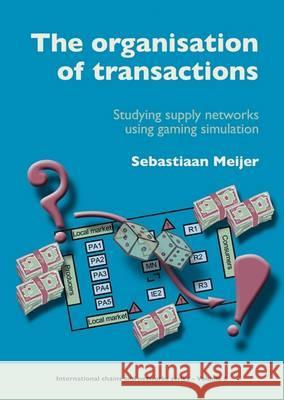The Organisation of Transactions: Studying Supply Networks Using Gaming Simulation » książka
The Organisation of Transactions: Studying Supply Networks Using Gaming Simulation
ISBN-13: 9789086861026 / Angielski
The globalisation of supply chains and networks causes traders from all over the world to make transactions with each other. Many transactions are made in world markets where the price is the way in which supply and demand are brought together. Other transactions, however, are made between people who know each other and have business relationships, using the so-called network mode of organisation. These traders may be loyal to one another and consider the role of social variables like trust, embeddedness and culture in their choices. This balance between network and market modes of organisation is not yet fully understood and is addressed in this book. This book uses a new research method that is ideally suited to study complex supply networks with all of its different traders. Gaming simulation is an established method for training and policy evaluation, but its application as a both quantitative and qualitative research method is relatively new. Two gaming simulations, called the Trust and Tracing Game (to study trust and cheating) and the Mango Chain Game (to study bargaining power and revenue distribution) are applied to show empirical results of a generic supply network trading products with a hidden quality attribute and the mango supply network from Costa Rica. This book is of interest for two categories of readers. Those who may like to concentrate on the empirical results will be interested in the factors that determine the choice of a mode of organisation in supply networks. Those who are interested in the methodology may wish to use gaming simulation as a research tool in their own research.











